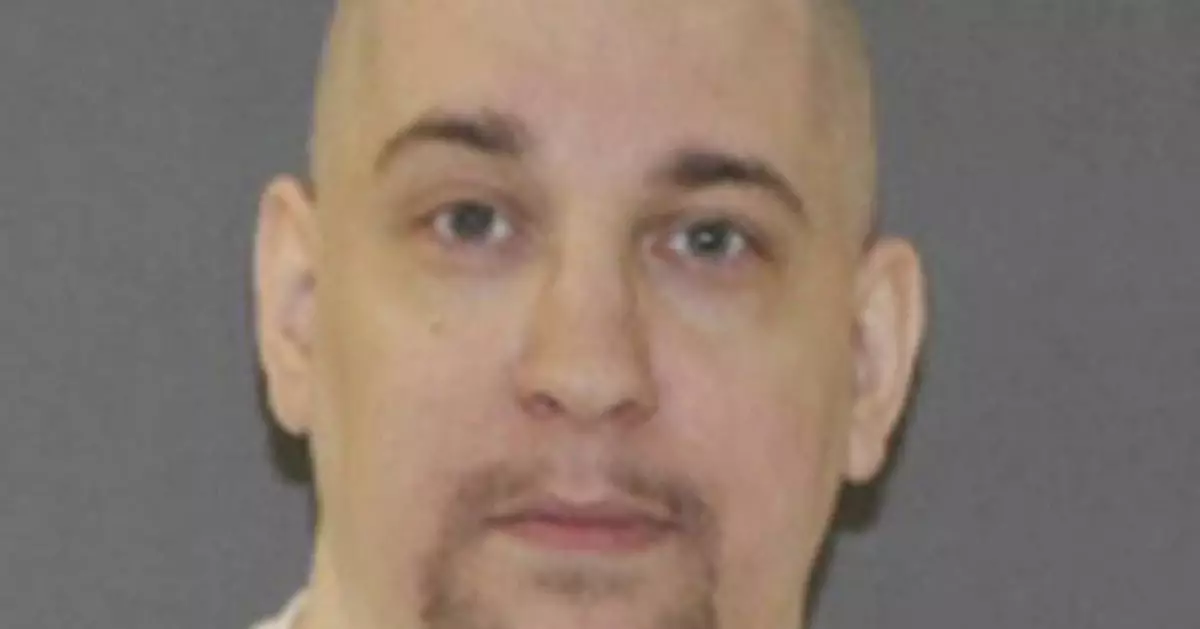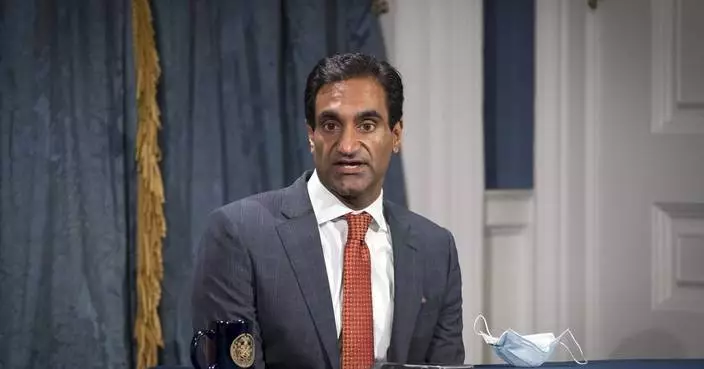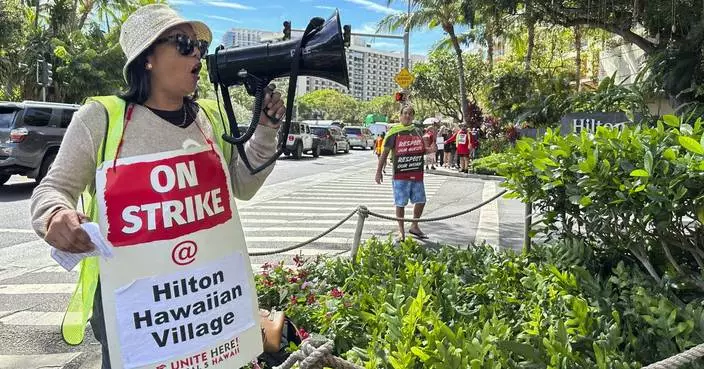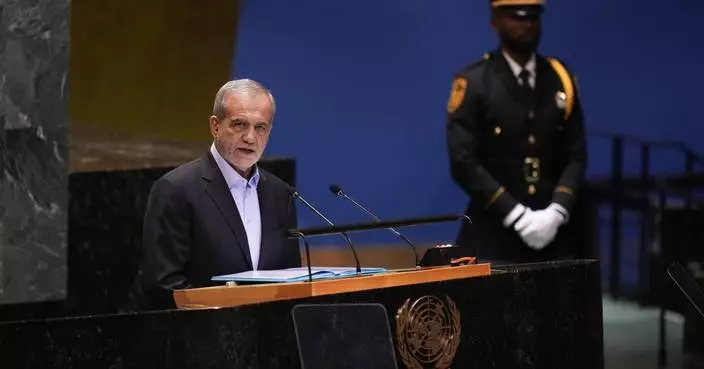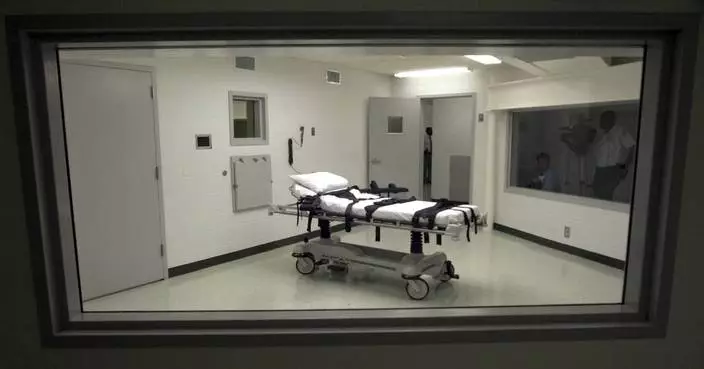HUNTSVILLE, Texas (AP) — A Texas man who had waived his right to appeal his death sentence was put to death Tuesday evening for killing his 3-month-old son more than 16 years ago, one of five executions scheduled within a week’s time in the U.S.
Travis Mullis, 38, received a lethal injection at the state penitentiary in Huntsville and was pronounced dead at 7:01 p.m. CDT. He was condemned for stomping to death his son Alijah in January 2008.
Mullis was the fourth inmate put to death this year in Texas, the nation’s busiest capital punishment state. Another execution was carried out Tuesday evening in Missouri, and on Thursday, executions were scheduled to take place in Oklahoma and Alabama. South Carolina conducted an execution Friday.
Authorities said Mullis, then 21 and living in Brazoria County, drove to nearby Galveston with his son after fighting with his girlfriend. Mullis parked his car and sexually assaulted his son. After the infant began to cry uncontrollably, Mullis began strangling the child before taking him out of the car and stomping on his head, according to authorities.
The infant’s body was later found on the roadside. Mullis fled the state but was later arrested after surrendering to police in Philadelphia.
Mullis’ execution proceeded after one of his attorneys, Shawn Nolan, said he planned no late appeals in a bid to spare the inmate's life. Nolan also said in a statement Tuesday afternoon that Texas would be executing a “redeemed man” who has always accepted responsibility for committing “an awful crime.”
“He never had a chance at life being abandoned by his parents and then severely abused by his adoptive father starting at age three. During his decade and a half on death row he spent countless hours working on his redemption. And he achieved it. The Travis that Texas wanted to kill is long gone. Rest in Peace TJ," Nolan said.
Mullis declined an offer earlier in the day to phone his attorney from a holding cell outside the death chamber, said Texas Department of Criminal Justice spokeswoman Hannah Haney. His lawyers also did not file a clemency petition with the Texas Board of Pardons and Paroles.
In a letter submitted in February to U.S. District Judge George Hanks in Houston, Mullis wrote that he had no desire to challenge his case any further. Mullis has previously taken responsibility for his son’s death and has said “his punishment fit the crime.”
At Mullis’ trial, prosecutors said Mullis was a “monster” who manipulated people, was deceitful and refused the medical and psychiatric help he had been offered.
Since his conviction in 2011, Mullis has long been at odds with his various attorneys over whether to appeal his case. At times, Mullis had asked that his appeals be waived, only to later change his mind.
Nolan had previously told the 5th U.S. Circuit Court of Appeals during a June 2023 hearing that state courts in Texas had erred in ruling that Mullis had been mentally competent when he had waived his right to appeal his case about a decade earlier.
Nolan told the appeals court that Mullis has been treated for “profound mental illness” since he was 3 years old, was sexually abused as a child and is “severely bipolar,” leading him to change his mind about appealing.
Natalie Thompson, who at the time was with the Texas Attorney General’s Office, told the appeals court that Mullis understood what he was doing and could go against his lawyers’ advice “even if he’s suffering from mental illness.”
The appeals court upheld Hank’s ruling from 2021 that found Mullis “repeatedly competently chose to waive review” of his death sentence.
The U.S. Supreme Court has prohibited the application of the death penalty for the intellectually disabled, but not for people with serious mental illness.
If the remaining executions in Texas, Alabama and Oklahoma are carried out as planned, it will mark the first time in more than 20 years — since July 2003 — that five were held in seven days, according to the nonprofit Death Penalty Information Center, which takes no position on capital punishment but has criticized the way states carry out executions.
The first took place Friday when South Carolina put inmate Freddie Owens to death. Also Tuesday, Marcellus Williams was executed in Missouri. On Thursday, executions are scheduled for Alan Miller in Alabama and Emmanuel Littlejohn in Oklahoma.
Lozano reported from Houston.
Follow Juan A. Lozano: https://twitter.com/juanlozano70
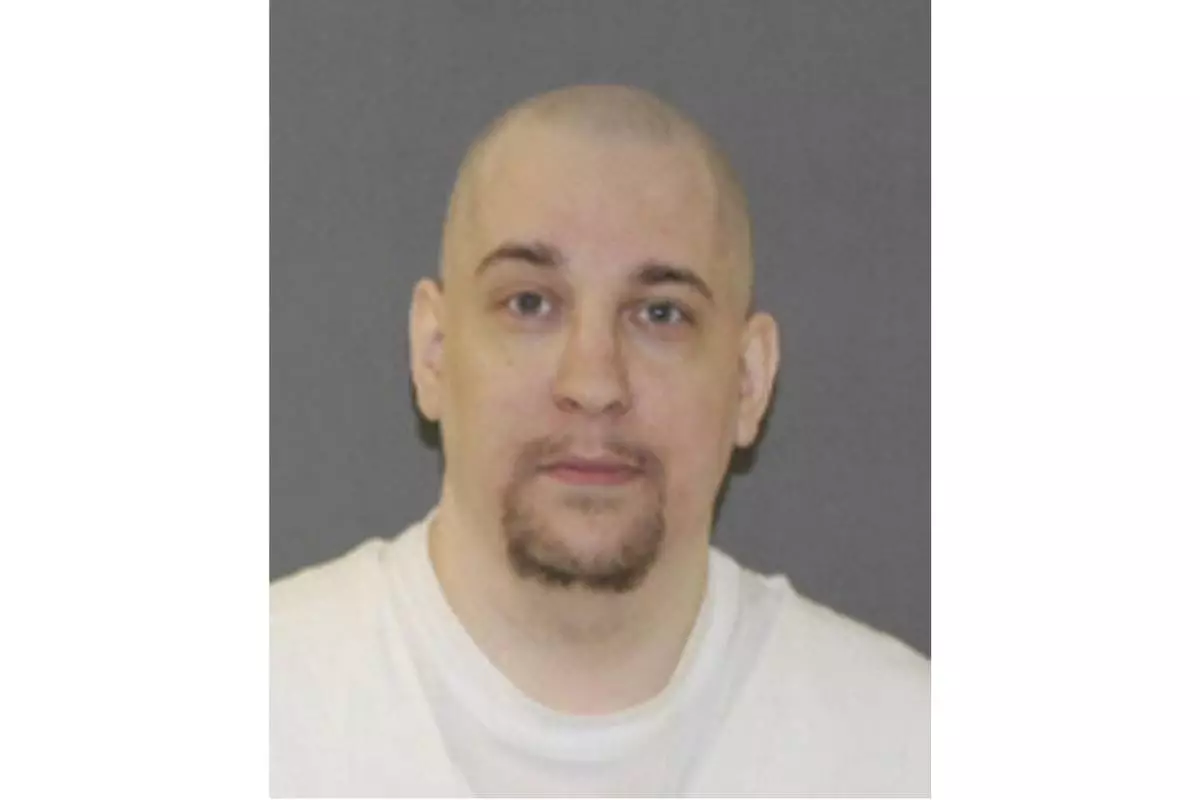
This undated photo provided by Texas Department of Criminal Justice shows Texas death row inmate Travis Mullis. (Texas Department of Criminal Justice via AP)
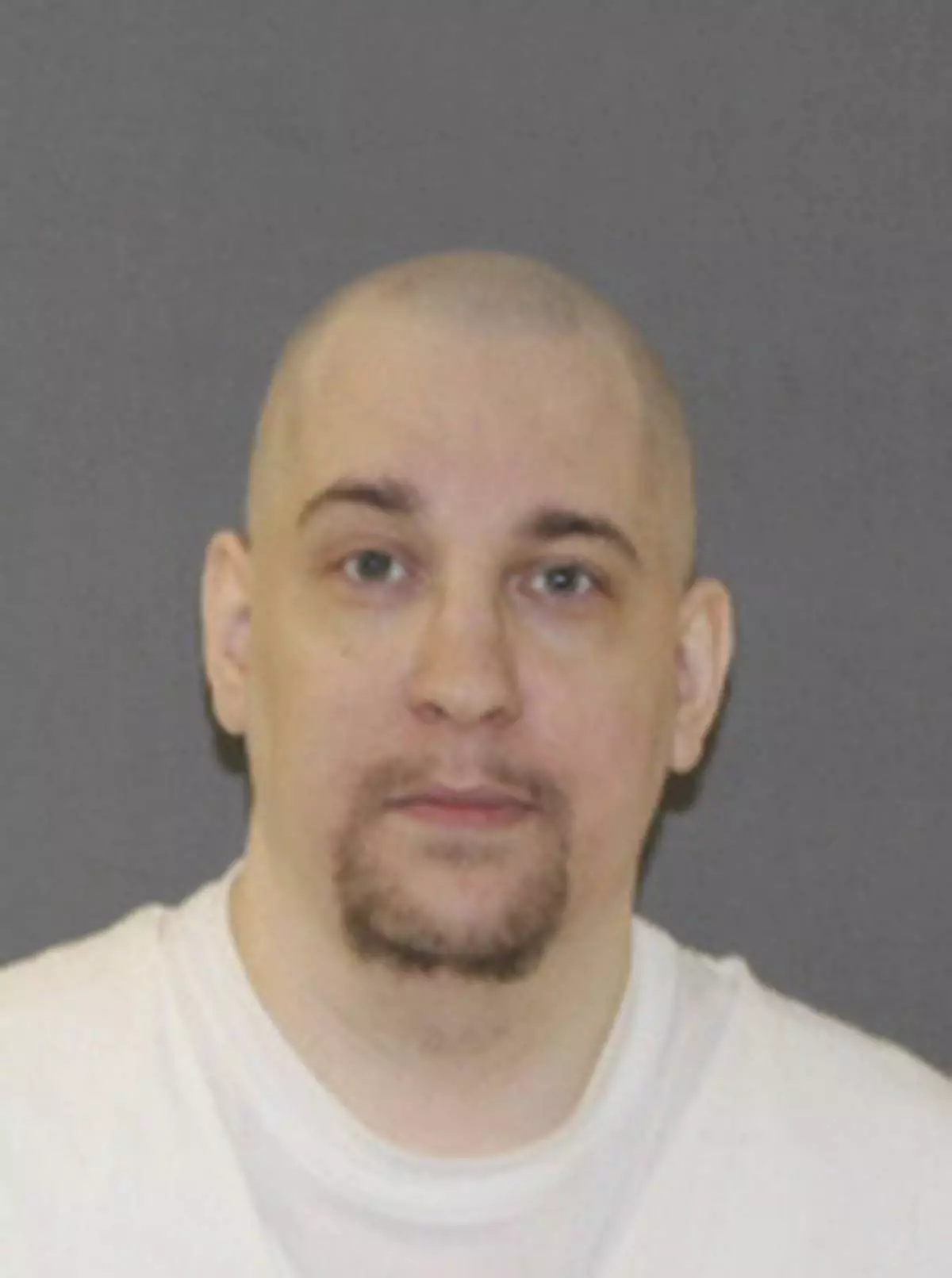
This undated photo provided by Texas Department of Criminal Justice shows Texas death row inmate Travis Mullis. (Texas Department of Criminal Justice via AP)
BONNE TERRE, Mo. (AP) — A Missouri man convicted of breaking into a woman’s home and repeatedly stabbing her was executed Tuesday over the objections of the victim’s family and the prosecutor, who wanted the death sentence commuted to life in prison.
Marcellus Williams, 55, was convicted in the 1998 killing of Lisha Gayle, who was stabbed during the burglary of her suburban St. Louis home.
Williams was put to death despite questions his attorneys raised over jury selection at his trial and the handling of evidence in the case. His clemency petition focused heavily on how Gayle’s relatives wanted Williams’ sentence commuted to life without the possibility of parole.
“The family defines closure as Marcellus being allowed to live,” the petition stated. “Marcellus’ execution is not necessary.”
As Williams lay awaiting execution, he appeared to converse with a spiritual adviser seated next to him. Williams wiggled his feet underneath a white sheet that was pulled up to his neck and moved his head slightly while his spiritual advisor continued to talk. Then Williams' chest heaved about a half dozen times, and he showed no further movement.
Williams' son and two attorneys watched from another room. No one was present on behalf of the victim's family.
The Department of Corrections released a brief statement that Williams had written ahead of time, saying: “All Praise Be to Allah In Every Situation!!!”
Republican Missouri Gov. Mike Parson said he hoped the execution brings finality to a case that “languished for decades, revictimizing Ms. Gayle’s family over and over again.”
“No juror nor judge has ever found Williams’ innocence claim to be credible,” Parson said in a statement.
The NAACP had been among those urging Parson to cancel the execution.
“Tonight, Missouri lynched another innocent Black man,” NAACP President Derrick Johnson said in a statement.
It was the third time Williams faced execution. He got reprieves in 2015 and 2017, but his last-ditch efforts this time were futile. Parson and the state Supreme Court rejected his appeals in quick succession Monday, and the U.S. Supreme Court declined to intervene hours before he was put to death.
Last month, Gayle’s relatives gave their blessings to an agreement between the St. Louis County prosecuting attorney’s office and Williams’ attorneys to commute the sentence to life in prison. But acting on an appeal from Missouri Attorney General Andrew Bailey’s office, the state Supreme Court nullified the agreement.
Williams was among death row inmates in five states who were scheduled to be put to death in the span of a week — an unusually high number that defies a yearslong decline in the use and support of the death penalty in the U.S. The first was carried out Friday in South Carolina. Texas was also slated to execute a prisoner on Tuesday evening.
Gayle, 42, was a social worker and former St. Louis Post-Dispatch reporter. Prosecutors at Williams’ trial said he broke into her home on Aug. 11, 1998, heard the shower running and found a large butcher knife. Gayle was stabbed 43 times when she came downstairs. Her purse and her husband’s laptop were stolen.
Authorities said Williams stole a jacket to conceal blood on his shirt. His girlfriend asked him why he would wear a jacket on a hot day. She said she later saw the purse and laptop in his car and that Williams sold the computer a day or two later.
Prosecutors also cited testimony from Henry Cole, who shared a cell with Williams in 1999 while Williams was jailed on unrelated charges. Cole told prosecutors that Williams confessed to the killing and provided details about it.
Williams’ attorneys responded that the girlfriend and Cole were both convicted of felonies and wanted a $10,000 reward. They said that fingerprints, a bloody shoeprint, hair and other evidence at the crime scene didn’t match Williams’.
A crime scene investigator had testified the killer wore gloves.
Questions about DNA evidence also led St. Louis Prosecuting Attorney Wesley Bell to request a hearing challenging Williams’ guilt. But days before the Aug. 21 hearing, new testing showed that DNA on the knife belonged to members of the prosecutor’s office who handled it without gloves after the original crime lab tests.
Without DNA evidence pointing to any alternative suspect, Midwest Innocence Project attorneys reached a compromise with the prosecutor’s office: Williams would enter a new, no-contest plea to first-degree murder in exchange for a new sentence of life in prison without parole. A no-contest plea isn’t an admission of guilt but is treated as such for the purpose of sentencing.
Judge Bruce Hilton signed off, as did Gayle’s family. But Bailey appealed, and the state Supreme Court blocked the agreement and ordered Hilton to proceed with an evidentiary hearing, which took place last month.
Hilton ruled on Sept. 12 that the first-degree murder conviction and death sentence would stand, noting that Williams’ arguments all had been previously rejected. That decision was upheld Monday by the state Supreme Court.
Attorneys for Williams, who was Black, also challenged the fairness of his trial, particularly the fact that only one of the 12 jurors was Black. Tricia Bushnell of the Midwest Innocence Project said the prosecutor in the case, Keith Larner, removed six of seven Black prospective jurors.
Larner testified at the August hearing that he struck one potential Black juror partly because he looked too much like Williams — a statement that Williams’ attorneys asserted showed improper racial bias.
Larner contended that the jury selection process was fair.
Williams was the third Missouri inmate put to death this year and the 100th since the state resumed use of the death penalty in 1989.
AP writer Mark Sherman contributed from Washington. Salter reported from O’Fallon, Missouri.
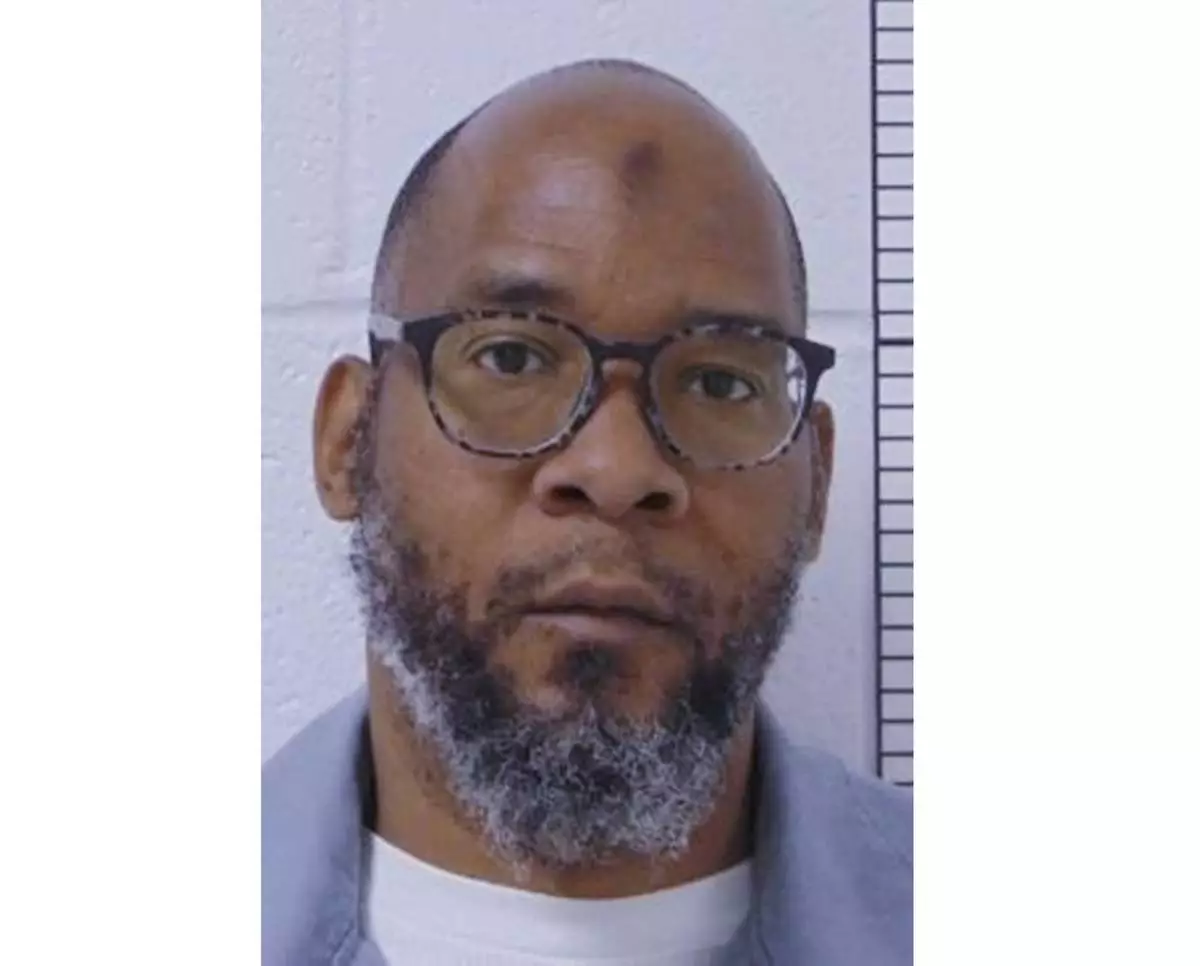
FILE - This photo provided by the Missouri Department of Corrections shows Marcellus Williams. (Missouri Department of Corrections via AP, file)
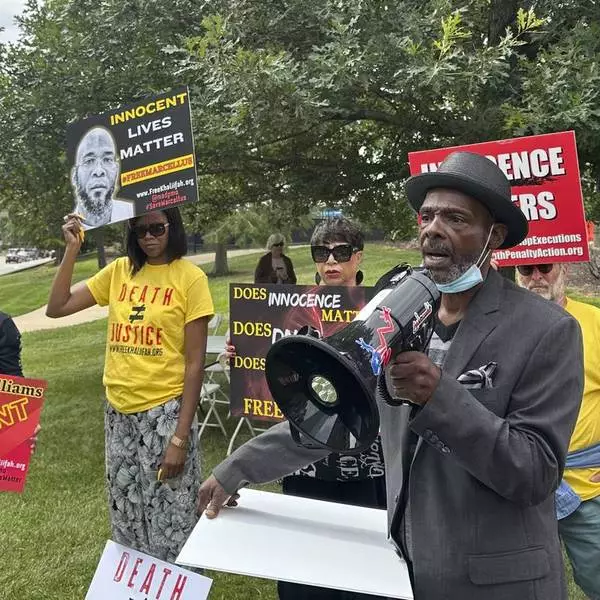
Lawyers seek Supreme Court intervention hours before a Missouri inmate's planned execution
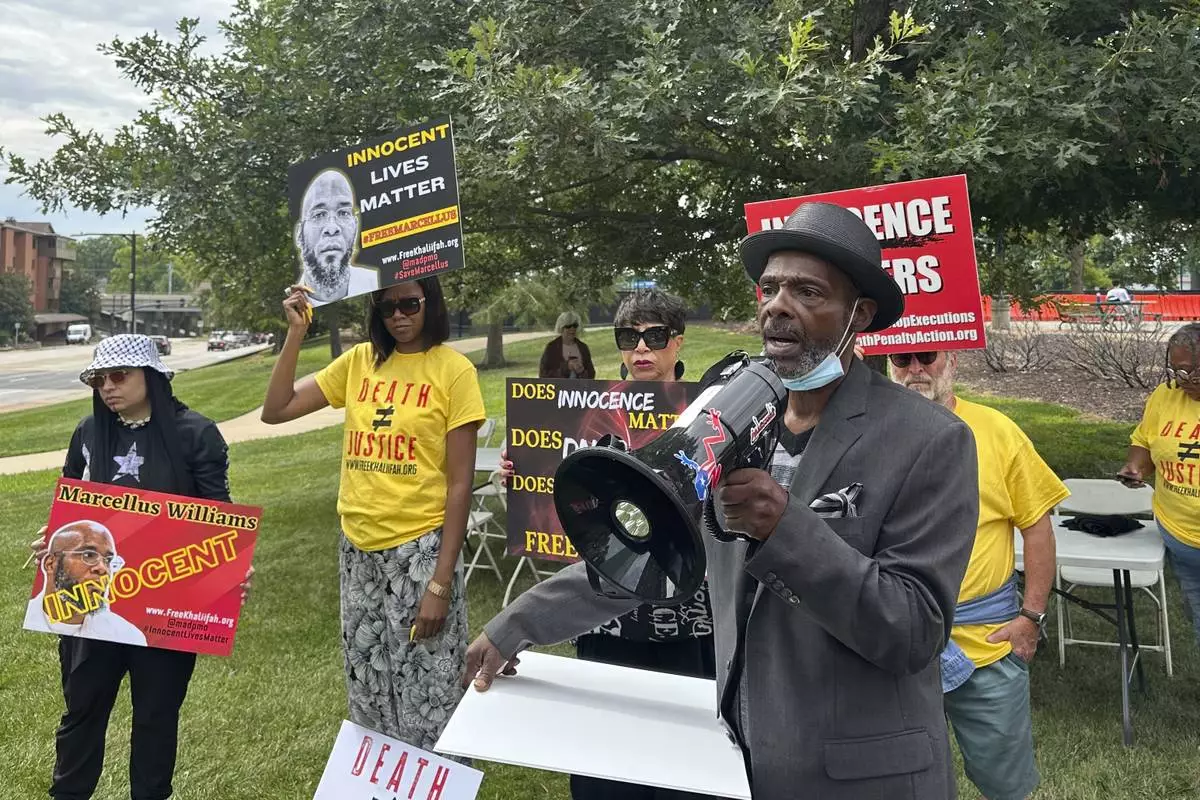
FILE - Joseph Amrine, who was exonerated two decades ago after spending years on death row, speaks at a rally to support Missouri death row inmates Marcellus Williams on Aug. 21, 2024, in Clayton, Mo. (AP Photo/Jim Salter, file)
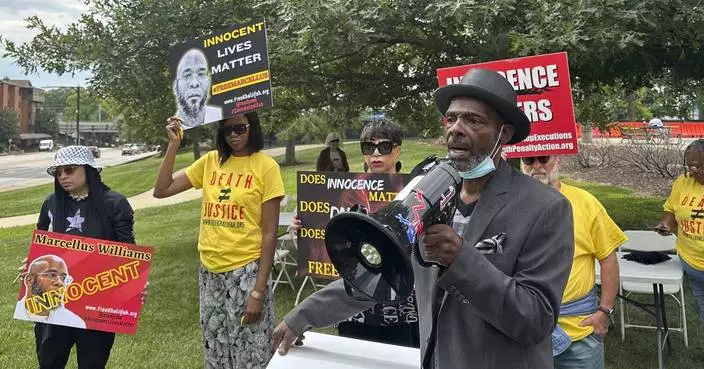
Lawyers seek Supreme Court intervention hours before a Missouri inmate's planned execution




